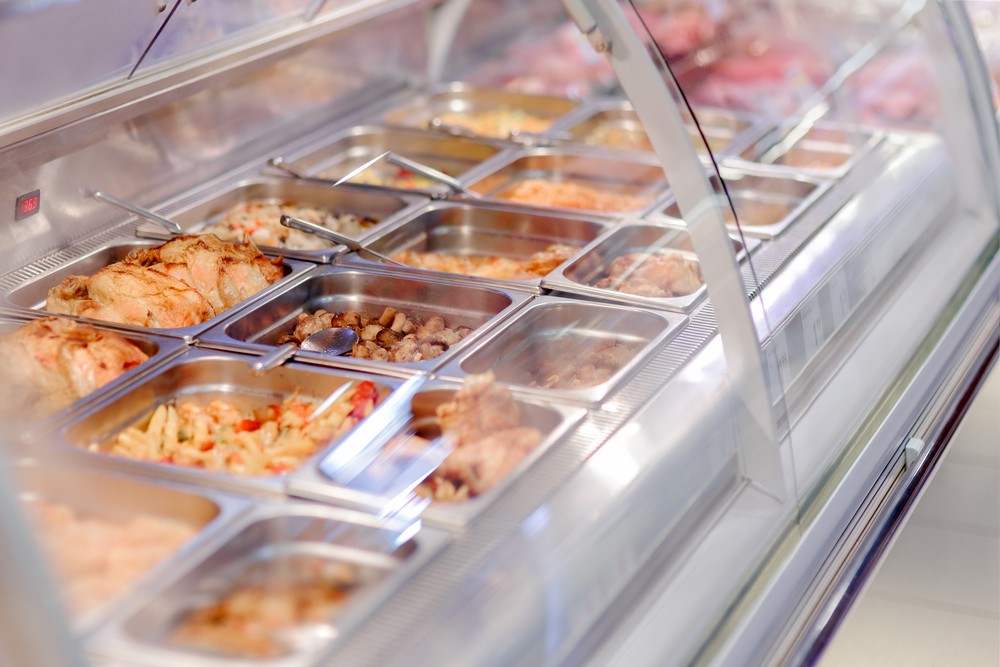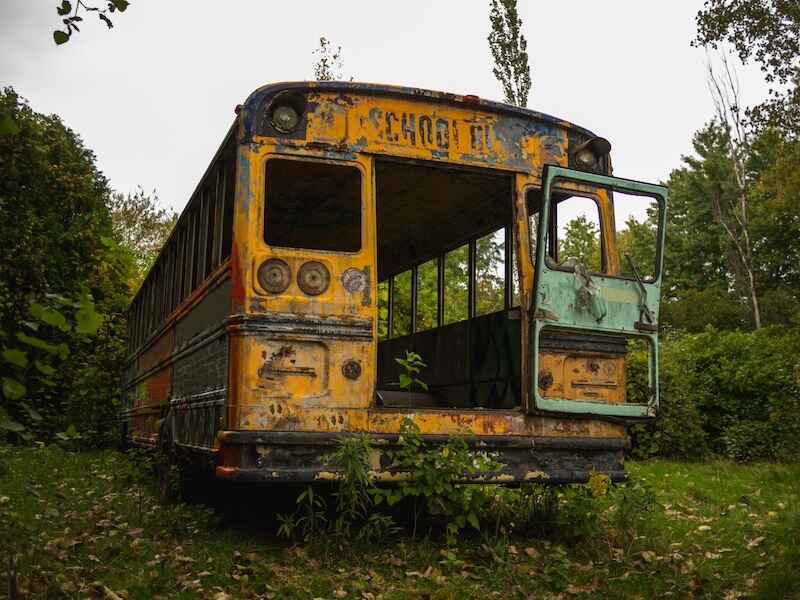How Big Food Wins… and We Lose
Joel Salatin|March 23, 2021

The gap between the heart and the hand is sometimes larger than we can imagine.
Along with the food served in nursing homes (as I wrote to you about a few weeks ago)… many people realize that the food served in schools and colleges is some of the worst quality in the nation.
Being bighearted, these folks would like to see better fare in these institutions. I’ve been asked many times why this can’t be remedied.
You would think that all the dining services coordinator needs to do is switch vendors.
After all, if I want to change the brand of tennis shoes my kids wear, I just buy a different brand. If I want a different kind of toothpaste, I simply buy a different kind of toothpaste.
Exercising choice can be fairly easy.
But the institutional food world is hog-tied by bureaucracy, logistics… and kickbacks.
And we’re the ones paying the price.
Tech Over Taste
A college just south of us, wanting to upgrade its fare, decided to purchase ground beef from a local grass-finished beef operation.
But the problem was that the kitchen had just invested in a techno-glitzy hamburger warmer that offered students 24/7, hot, ready-to-eat burgers. Come by anytime and grab one.
The $25,000 machine had every bell and whistle imaginable. But it needed the high fat content and mushy consistency of the grain-fed beef to work properly. The leaner and more substantive ground beef did not hold up as long in the machine and turned into hockey pucks.
The entire initiative collapsed because the machine could not accommodate a different burger consistency.
To abandon the machine was unthinkable.
When a Colorado school division decided to offer pastured chickens on its school menu, the only way to make the shift work within the constraints of the financials was to use the thighs.
But students wouldn’t eat them because no one was familiar with bones in chicken. The school had to institute a crash course in eating chicken pieces containing bones.
Only through the sheer determination of the dining services coordinator did the whole program succeed after significant education effort.
One of my favorite stories happened in Kentucky when a college decided to shift from grain-finished to grass-finished beef.
The grass-finished meat had more substance to it and required a bit more chewing, which the students found unacceptable.
The entire effort failed because the students rebelled at having to chew.
Our own farm dealt with a local university that decided to shift to locally sourced food. It hired a new dining services chef to implement the policy, and in his first week on the job, he contacted us about supplying the dining services.
I was certainly more than happy to oblige, and we talked about pricing and availability. He promised to get back to me in a couple of weeks.
I waited three weeks and decided to call him. When I called him, he lowered his voice to a whisper on the phone and said, “I can’t talk here. Give me a few minutes to drive off campus and I’ll call you back.”
It sounded like some sort of mafia deal.
Good to his word, in a few minutes the phone rang, and I got the scoop. The board of directors, which of course comprises muckety-mucks in the area with ties to industrial food, decided that since a Cargill and Perdue plant existed in the area, it could buy that chicken and call it local.
The new chef tendered his resignation and moved on immediately thereafter.
Let’s be clear: Local food is produced, owned and processed locally.
A corporate headquarters owned by shareholders around the world can never be a local source… but that’s how the big wheels play ethical gymnastics.
The Price of Loyalty
A few years ago, I was asked to keynote the national convention of college dining services administrators in Colorado.
Half the attendees were corporate food sponsors. My address went over coolly since I told folks to patronize authentic food from local sources.
On the way back to the airport in the morning, I rode the airport shuttle along with several of the attendees.
I don’t know whether they realized who I was, but they talked quite freely among themselves about their various kickbacks from their suppliers. One received a free trip to Acapulco. Another received tickets to Disney.
Each of them, as heads of college dining services, received personal gifts for hitting certain purchasing benchmarks.
An entire incentive program existed within the supply chain to reward customer loyalty with personal gifts.
Most of these colleges, of course, were public institutions.
Why would any of these folks seek an alternative supplier when they receive kickbacks for hitting purchase quotas?
No Change
Few people realize how the system works to protect the status quo and keep competitors at bay.
If you’ve ever wondered why the college where your child or grandchild attends, or the nursing home where your mother lives, buys such junky food, now you know what goes on behind the scenes.
Change doesn’t come easy… or at all.
Goodhearted people trying to put their convictions into action are often stymied by logistics, ignorance and payola.
And our health and well-being pay the price.
Sincerely,
Joel

Joel Salatin
Joel Salatin calls himself a Christian libertarian environmentalist capitalist lunatic farmer. Others who like him call him the most famous farmer in the world, the high priest of the pasture, and the most eclectic thinker from Virginia since Thomas Jefferson. Those who don’t like him call him a bioterrorist, Typhoid Mary, a charlatan, and a starvation advocate. With a room full of debate trophies from high school and college days, 12 published books, and a thriving multigenerational family farm, he draws on a lifetime of food, farming and fantasy to entertain and inspire audiences around the world.



